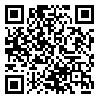Volume 12, Issue 44 (7-2021)
jemr 2021, 12(44): 105-142 |
Back to browse issues page
Download citation:
BibTeX | RIS | EndNote | Medlars | ProCite | Reference Manager | RefWorks
Send citation to:



BibTeX | RIS | EndNote | Medlars | ProCite | Reference Manager | RefWorks
Send citation to:
Arshadi V, Tavakoli Jaghargh R, Monfared M, Ghyasi J. Evaluation of Efficiency of Signals of Choosing Educational Field From The Perspective of Labor Market Needs. jemr 2021; 12 (44) :105-142
URL: http://jemr.khu.ac.ir/article-1-2032-en.html
URL: http://jemr.khu.ac.ir/article-1-2032-en.html
1- Ferdowsi University Of Mashhad , v.arshadi@um.ac.ir
2- Sharif University of Technology
3- Ferdowsi University Of Mashhad
2- Sharif University of Technology
3- Ferdowsi University Of Mashhad
Abstract: (5371 Views)
Due to the undesirable phenomenon of graduate unemployment and its negative effects, Addressing the issue of how to major choice is of particular importance. The main question of the research is whether the existing signals of choosing a field have been effective in guiding people in accordance with the needs of the labor market? The method of this research is descriptive-analytical; It has been a combination of documentary studies, qualitative statistical analysis (descriptive statistics) and analytical statistics (cross-sectional econometrics). The findings of this study, which was conducted using the data of the years (2006-2018) and controlled by the province and the type of university, show in major choice of volunteers, no attention is paid to the unemployment rate of that field. The non-significance of the unemployment rate coefficient in the above model confirms the hypothesis that the unemployment rate of the field (main independent variable) does not explain the registration rate in that field (dependent variable), Therefore, the unemployment rate of the field in any of the six fields, in any type of universities and in any of the provinces, has no significant effect on the rate of major choice. According to the theoretical and experimental background of research in many other countries, there is a problem and weakness and they have followed solutions for it.
Type of Study: Applicable |
Subject:
رشد و توسعه و سیاست های کلان
Received: 2020/05/8 | Accepted: 2021/09/21 | Published: 2022/01/25
Received: 2020/05/8 | Accepted: 2021/09/21 | Published: 2022/01/25
References
1. Altonji, Joseph G., Blom, Erica, & Meghir, Costas. 2012. Heterogeneity In Human Capital Investments: High School Curriculum, College Major, And Careers. NBER Working Paper. [DOI:10.3386/w17985]
2. Arcidiacono, Peter, V. Joseph Hotz, And Songman Kang. 2012. Modeling College Major Choices Using Elicited Measures Of Expectations And Counterfactuals. Journal Of Econometrics 166 (1) (January): 3-16. [DOI:10.1016/j.jeconom.2011.06.002]
3. Baker, R, E Bettinger, B Jacob, And I Marinescu (2017), "The Effect Of Labor Market Information On Community College Students' Major Choice", NBER Working Paper 23333. [DOI:10.3386/w23333]
4. Barrow, Lisa And Ofer Malamud (2015), Is College A Worthwhile Investment? Annu. Rev. Econ. 2015. 7:519-55 , The Annual Review Of Economics Is Online At Economics.Annualreviews.Org. [DOI:10.1146/annurev-economics-080614-115510]
5. Dartoomi, A., Salimifar, M., MALEKOSADATI, S. (2017). Education-Job Mismatch in the Labor Market of Iran. Journal Of Economics and Regional Development, 24(13), 68-94. doi: 10.22067/erd.v24i14.66945.
6. Eisazadeh S, Naziri M K, Naeini H. The Effect of Skill Mismatch on Unemployment Rate in Iran. jemr. 2018; 8 (30) :79-107. (in Persian) [DOI:10.29252/jemr.8.30.79]
7. Ebrahimi M, Gholizadeh A A, Alipour A. The Relationships between Education and Occupation in Iran: an Application of Verdugo-Verdugo Model. QJER. 2015; 15 (3) :195-210. (in persian)
8. Eymann Annina, And Schweriy. Juerg (2015). Horizontal Skills Mismatch And Vocational Education, Discussion Paper, February 24, 2015.
9. Feld, Jan and Zölitz, Ulf, The Effect of Higher-Achieving Peers on Major Choices and Labor Market Outcomes (June 2021). University of Zurich, Department of Economics, Working Paper No. 388, Available at SSRN: https://ssrn.com/abstract=3858799 or . [DOI:10.2139/ssrn.3858799]
10. Graham, J, and S Graham. 2013. "Literature Review Exploring Job Mismatch and Income," Human Resources and Skills.
11. Kaliskova, k. 2015. "Skills Mismatches in the Czech Republic. A Project of the Economic." Institute For Democracy and Economic.
12. Kupets, o. 2015. "Education-job mismatch in Ukraine: Too many people with tertiary." Journal of Comparative Economics [DOI:10.1016/j.jce.2015.10.005]
13. Long, Mark C. & Goldhaber, Dan & Huntington-Klein, Nick, 2015. "Do completed college majors respond to changes in wages?," Economics of Education Review, Elsevier, vol. 49(C), pages 1-14. [DOI:10.1016/j.econedurev.2015.07.007]
14. Mehrara M, elahi G. The Effect of Education on Labor Wages in Iranian Urban Households Based on Quantile Regression. jemr. 2020; 10 (38) :153-180. (in Persian) [DOI:10.29252/jemr.10.38.153]
15. Motaberi, M. 1992. "Analytical study of factors affecting the choice of students in some universities in the country." Master Thesis, University of Tehran, Faculty of Psychology and Educational Sciences. (in persian)
16. Patrick A. D. 2020. "Choosing and Changing Course: Postsecondary Students and the Process of Selecting a Major Field of Study .Journal of Sociological Perspectives " 64(1). 82-108 (in persian). [DOI:10.1177/0731121420921903]
17. Roth, Alvin E. (1991). "A Natural Experiment in the Organization of Entry-Level Labor Markets: Regional Markets for New Physicians and Surgeons in the United Kingdom". American Economic Review. 81 (3): 415-440.
18. Thurow, Lester C. 1975: Generating Inequality. Mechanisms of Distribution in the U.S. Economy. New York. [DOI:10.1007/978-1-349-15723-5]
19. Thurow, Lester C. 1979: A Job-Competition Model. In: Piore, Michael J. (Ed.): Unemployment and Inflation: Institutionalist and Structuralist Views. New York, 17-32. [DOI:10.4324/9781315084374-4]
20. Zafar, Basit.)2011(. How Do College Students Form Expectations? Journal Of Labor Economics, 29(2): 301-348. [DOI:10.1086/658091]
Send email to the article author
| Rights and permissions | |
 | This work is licensed under a Creative Commons Attribution-NonCommercial 4.0 International License. |







